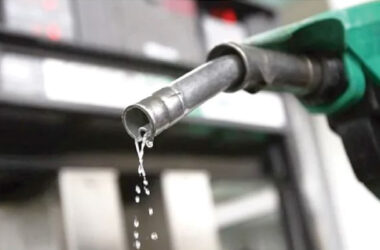Discussions are set to resume between the Federal Government, the Nigerian National Petroleum Company Limited (NNPCL), and Dangote Petroleum Refinery regarding the naira-for-crude policy. The six-month agreement, which allowed Dangote Refinery to buy crude oil in naira, officially ended on March 31, 2025, and has not yet been renewed.
Sources familiar with the situation noted that all stakeholders are expected to meet soon to determine the next steps. While the policy’s renewal remains uncertain, officials suggest that its impact on fuel prices and foreign exchange rates makes it likely to continue.
A senior government official who spoke on the condition of anonymity stated, “The initiative is going to continue because it is now obvious that the policy has a great impact on not just fuel prices, but also on other economic indices. It also positively impacted the FX rate.” However, the official added that the government is waiting for a report from the Nigeria Upstream Petroleum Regulatory Commission before making a final decision.
The naira-for-crude policy was introduced on October 1, 2024, to boost local refining, reduce dependence on fuel imports, and stabilize pump prices. Under the deal, NNPCL supplied 48 million barrels of crude to the Dangote Refinery in exchange for payments in naira. In total, the refinery has received 84 million barrels since it began operations in 2023.
Meanwhile, a report by S&P Global revealed that Dangote Refinery processed about 400,000 barrels of crude per day in 2025, with roughly 35% of its supply coming from international markets. In the first three months of the year, the refinery imported approximately 12.6 million barrels of crude, primarily from Brazil and Equatorial Guinea.
“We have started sourcing globally,” a Dangote Refinery executive told S&P Global. The company recently received its first crude shipment from Brazil’s Petrobras, which delivered one million barrels of Tupi crude on March 26. Supplies from Equatorial Guinea are also expected soon.
The growing reliance on imported crude comes as NNPCL, a major supplier and minority stakeholder in Dangote Refinery, has struggled to meet its supply commitments. According to industry data, NNPCL initially pledged to supply around 300,000 barrels per day but has consistently fallen short. By March 10, the company had delivered about 280,000 barrels per day in naira, missing the 385,000 barrels per day target set under the agreement.
Additionally, NNPCL reduced its stake in Dangote Refinery from 20% to 7.2% in July 2024, raising questions about its long-term role in the refinery’s operations. The company has reportedly allocated seven crude oil shipments for April, totaling 245,000 barrels per day, but payment terms are yet to be finalized.
A Dangote executive, speaking to S&P Global, expressed uncertainty over the renewal of the naira-for-crude agreement. “We are not even certain if it will be renewed or if it will proceed at all,” the executive said. He further noted that the requirement to sell refined products in naira had created financial challenges for the refinery.
“It’s not commercially advantageous for us,” the source explained. “When we buy in naira and sell in naira, the forex risk between the time of buying crude and selling the products may not be fully covered.”
As discussions over the policy’s future continue, the Human Rights Writers Association of Nigeria (HURIWA) has urged President Bola Tinubu to ensure the deal’s continuation. The group warned that ending the policy could lead to higher fuel prices and worsen economic hardships for millions of Nigerians.
In a statement signed by its National Coordinator, Emmanuel Onwubiko, HURIWA called on the government to act swiftly. “We make this public supplication and appeal because any alteration to this deal would mean excruciating hardships and the massive affliction of poverty on millions of the already suffering, struggling, and multidimensionally poor households,” the statement read.









